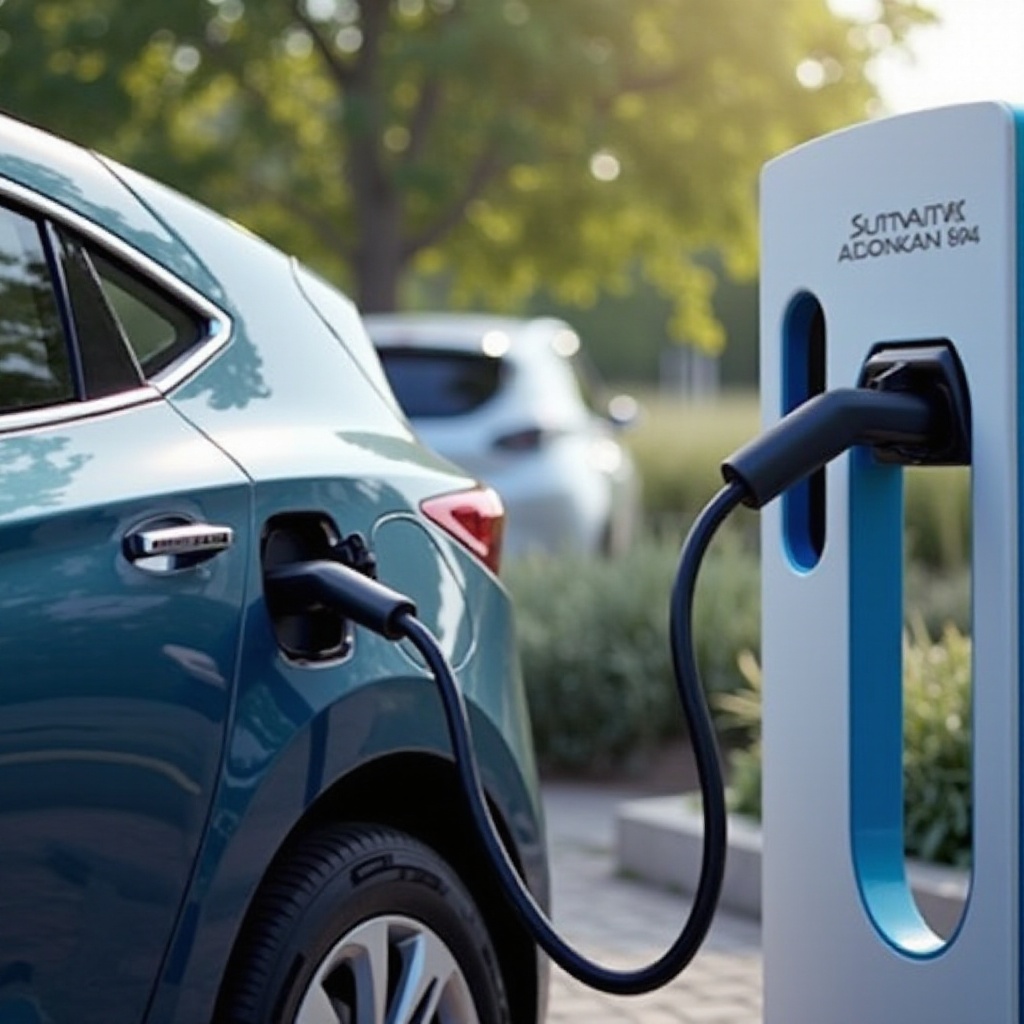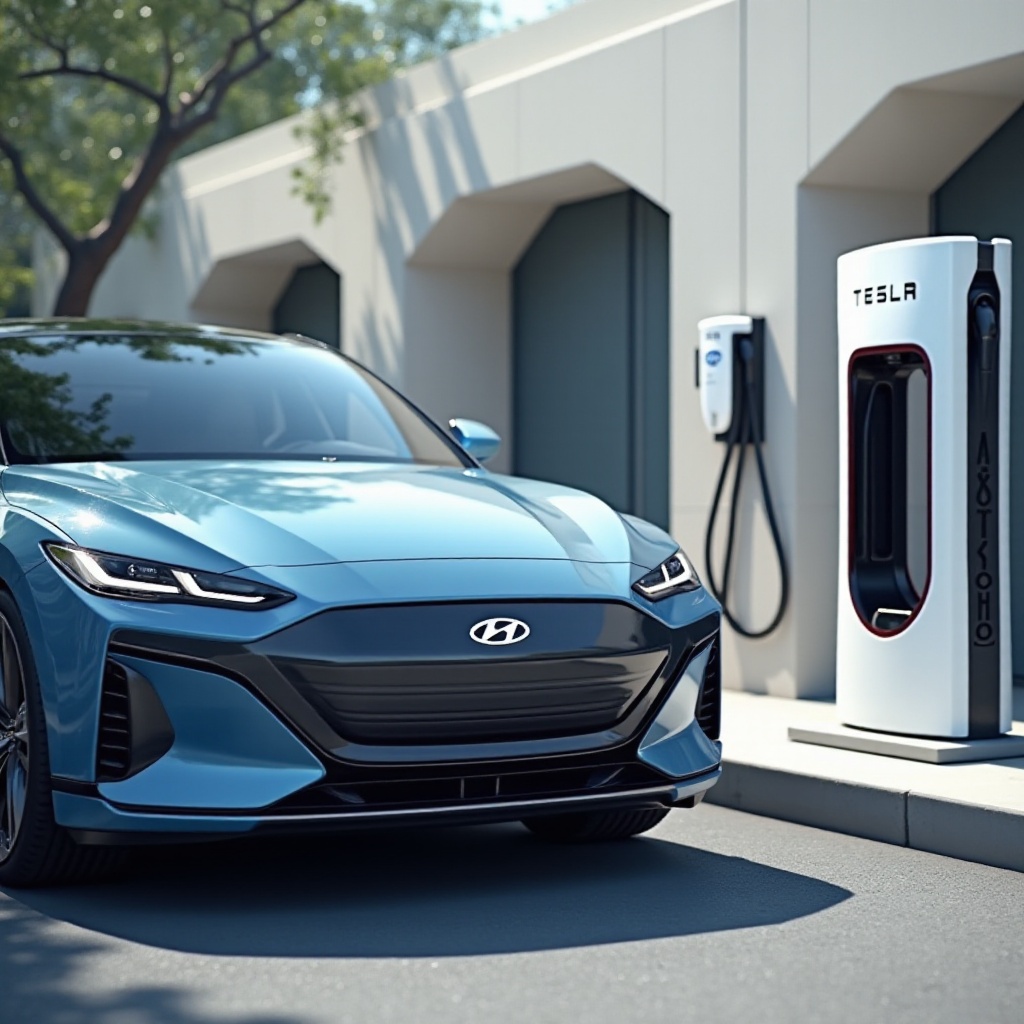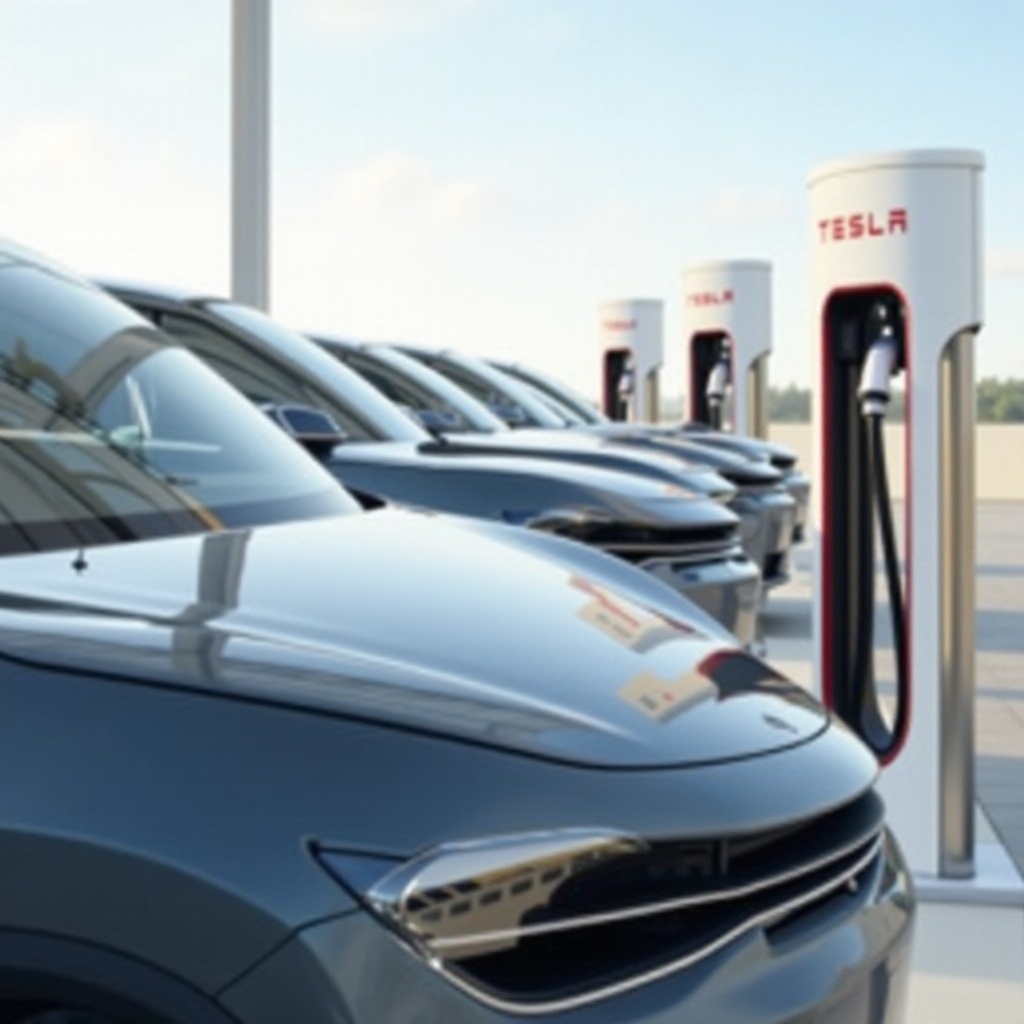Introduction
Electric vehicles (EVs) are becoming increasingly popular as consumers seek environmentally friendly transportation alternatives. With the growing number of EVs on the road, understanding charging compatibility is crucial. One question often arises: Can Hyundai use Tesla chargers? This query is particularly relevant for Hyundai EV owners and prospective buyers who want to know if they can tap into Tesla’s extensive Supercharger network. In this blog, we’ll explore the compatibility between Hyundai electric vehicles and Tesla chargers, providing clarity and solutions for owners and enthusiasts alike.

Understanding EV Charging Standards
To grasp the compatibility issue, it’s essential to understand the different EV charging standards. There are several charging standards in use globally, with the most common being:
- CHAdeMO: Primarily used by Japanese automakers like Nissan and Mitsubishi.
- CCS (Combined Charging System): Also known as SAE Combo, it’s widely adopted in Europe and North America.
- Tesla Supercharger: Proprietary to Tesla, used in their extensive global network.
- Type 2 (Mennekes): Common in Europe, offering AC charging options.
Each standard has its own set of connectors and communication protocols, which determine compatibility. For instance, CHAdeMO and CCS are often present in public charging stations, providing options for non-Tesla vehicles. This brings us to the charging capabilities of Hyundai electric vehicles.
Hyundai Electric Vehicles and Their Charging Capabilities
Hyundai offers a range of electric vehicles, including the Hyundai Kona Electric, Ioniq Electric, and the newer Ioniq 5. Each of these EVs comes equipped with different charging capabilities.
Charging Options:
-
AC Charging: Hyundai EVs typically use the Type 2 connector for AC charging, compatible with most public and home chargers. AC charging can take longer but is suitable for overnight or extended charging sessions.
-
DC Fast Charging: For rapid charging, Hyundai EVs use the CCS connector. It allows drivers to charge their vehicles significantly faster, often reaching 80% in about 30-45 minutes, depending on the charging station’s power output.
Understanding these charging capabilities is vital when considering the potential use of Tesla chargers, especially given the proprietary nature of Tesla’s Supercharger network. But what makes Tesla’s Supercharger network unique?

Overview of the Tesla Supercharger Network
Tesla’s Supercharger network is renowned for its extensive coverage and fast charging capabilities. Designed to reduce charging time significantly, Superchargers can deliver up to 250 kW of power, enabling a near full-charge within 30 minutes for Tesla vehicles.
Key Features:
- Proprietary Connectors: Tesla Superchargers use a unique connector incompatible with other EVs’ standard ports.
- Fast Charging Speed: Offering some of the fastest charging rates available, making long-distance travel more feasible for Tesla owners.
- Extensive Coverage: Available in strategic locations across North America, Europe, and Asia, facilitating convenient long-distance travel.
Tesla has paved the way for fast-charging infrastructure, but this brings us back to the main question: Can Hyundai EVs tap into this robust network? Let’s dive deeper into this issue.

Compatibility Between Hyundai EVs and Tesla Chargers
The central issue of compatibility hinges on the proprietary nature of the Tesla Supercharger network. Here are the main points concerning Hyundai EVs and Tesla chargers:
-
Connector Incompatibility: Hyundai EVs use the CCS connector for DC fast charging, whereas Tesla uses its proprietary connector in its Supercharger network. Physically connecting a Hyundai EV to a Tesla Supercharger isn’t straightforward due to this difference.
-
Communication Protocols: Beyond physical connectors, successful charging involves communication protocols that ensure proper power delivery and safety. Tesla’s protocols are designed specifically for their vehicles, which adds another layer of complexity for Hyundai EVs.
Solutions for Compatibility:
-
Adapters: As of now, Tesla does not offer a CCS to Tesla adapter for the Supercharger network. However, Tesla has introduced CCS connectors at some Supercharger locations in Europe, which could potentially work with Hyundai EVs designed to use the CCS standard.
-
Third-Party Chargers: Most Hyundai EV owners rely on third-party charging networks like Electrify America, ChargePoint, and others that offer CCS and CHAdeMO connectors. These networks provide similar charging speeds and are widely accessible.
-
Future Updates: Tesla occasionally updates its charging infrastructure, so it’s possible that more Superchargers may become universally compatible in the future.
Future Trends in EV Charging Compatibility
The push for universal compatibility in EV charging networks is gaining momentum. Automakers, governments, and charging providers recognize the importance of interoperability for widespread EV adoption. Key trends include:
- Adoption of CCS Standard: More charging networks are adopting the CCS standard, which could lead to greater compatibility across different EV brands.
- Open-Charge Point Protocol (OCPP): Industry efforts towards standardized communication protocols are underway, promoting smoother interoperability between EVs and chargers.
- Government Initiatives: Several governments are implementing policies and incentives to encourage the expansion of universally compatible charging infrastructure.
These trends suggest that in the near future, EV owners, including those with Hyundai vehicles, may enjoy more flexible and accessible charging options.
Conclusion
In summary, Hyundai electric vehicles cannot directly use Tesla Superchargers due to physical and protocol incompatibilities. However, solutions such as third-party charging networks and potential future updates may offer alternatives. The industry is moving towards greater compatibility, which bodes well for EV owners seeking more charging options.
Frequently Asked Questions
Can I use a Tesla charger for my Hyundai EV?
No, Hyundai EVs cannot currently use Tesla Superchargers due to connector and protocol incompatibilities.
Are there adapters available to connect a Hyundai EV to a Tesla charger?
There are no official adapters available for Hyundai EVs to use Tesla Superchargers, though options may develop in the future.
What are the future prospects for universal EV charger compatibility?
The future looks promising, with industry standards like CCS and initiatives for open communication protocols paving the way for more universal compatibility.
